detail profile clem beauchamp

Clem Beauchamp
Jerry Drew
atau dikenal sebagai
Riwayat Hidup
From Wikipedia, the free encyclopedia
Clement Hoyt "Clem" Beauchamp (August 26, 1898 – November 14, 1992), also known as Jerry Drew in his 20s and early 30s acting career, first worked as a second unit director in 1935, netting the Academy Award for Best Assistant Director for his work on The Lives of a Bengal Lancer.
He was nominated in the same category the following year for The Last of the Mohicans.
Born in Bloomfield, Iowa, Beauchamp was one of two sons of Charles and Ula Beauchamp.
His father was a druggist.
The family later moved to Denver, Colorado and then to Fort Worth, Texas.
After his parents divorced, his mother took her sons to Los Angeles, California where Beauchamp started working in motion pictures at age 16 as a stuntman.
His first known film is Stupid, But Brave.
He would later appear in The Painted Desert, sharing screen time with Clark Gable and William Boyd.
In 1933, he appeared in the W.
C.
Fields comedy International House, in a non-credited part as a newsreel cameraman.
Beauchamp had a short-lived marriage to actress and comedian Anita Garvin, who is best remembered for the eleven films she made with comedians Laurel and Hardy.
In 1935, he married script girl Sydney Hein.
He went on to work on several Tarzan and Dick Tracy movies, eventually becoming a production manager.
In this capacity, he worked on such films as Fred Zinnemann's The Men (1950) and High Noon (1952), Death of a Salesman (1951) and most of Stanley Kramer's best work, including The Defiant Ones (1958), Judgment at Nuremberg (1961) and It's a Mad, Mad, Mad, Mad World (1963).
He later worked on Blake Edwards' The Great Race (1965) and William A.
Graham's Waterhole No.
3 (1967).
He was also the production manager on The Adventures of Superman television series, starring George Reeves.
Beauchamp told The Literary Digest his name was pronounced "Bo-shawm, both syllables accented alike.
" (Charles Earle Funk, What's the Name, Please?, Funk & Wagnalls, 1936.
)
Info Pribadi
Peran Yang Di Mainkan Clem Beauchamp
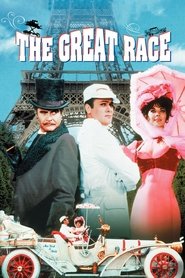 Professional daredevil and whitesuited hero The...
Professional daredevil and whitesuited hero The...The Great Race 1965
Professional daredevil and white-suited hero, The Great Leslie, convinces turn-of-the-century auto makers that a race from New York to Paris (westward across America, the Bering Straight and Russia) will help to promote automobile sales. Leslie's arch-rival, the mustached and black-attired Professor Fate vows to beat Leslie to the finish line in a car of Fate's own invention.
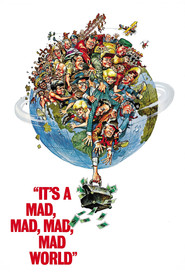 A group of strangers come across...
A group of strangers come across...It's a Mad, Mad, Mad, Mad World 1963
A group of strangers come across a man dying after a car crash who proceeds to tell them about the $350,000 he buried in California. What follows is the madcap adventures of those strangers as each attempts to claim the prize for himself.
 In 1947 four German judges who served...
In 1947 four German judges who served...Judgment at Nuremberg 1961
In 1947, four German judges who served on the bench during the Nazi regime face a military tribunal to answer charges of crimes against humanity. Chief Justice Haywood hears evidence and testimony not only from lead defendant Ernst Janning and his defense attorney Hans Rolfe, but also from the widow of a Nazi general, an idealistic U.S. Army captain and reluctant witness Irene Wallner.
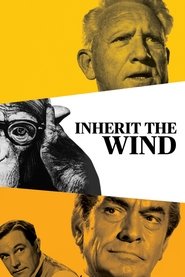 Schoolteacher Bertram Cates is arrested for...
Schoolteacher Bertram Cates is arrested for...Inherit the Wind 1960
Schoolteacher Bertram Cates is arrested for teaching his students Darwin's theory of evolution. The case receives national attention and one of the newspaper reporters, E.K. Hornbeck, arranges to bring in renowned defense attorney and atheist Henry Drummond to defend Cates. The prosecutor, Matthew Brady is a former presidential candidate, famous evangelist, and old adversary of Drummond.
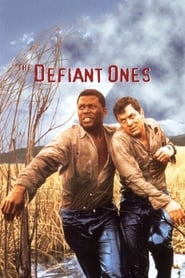 Two convictsa white racist and an...
Two convictsa white racist and an...The Defiant Ones 1958
Two convicts—a white racist and an angry black man—escape while chained to each other.
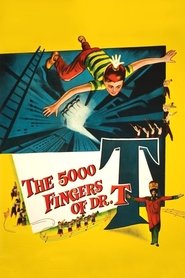 Young Bart Collins lives with his...
Young Bart Collins lives with his...The 5,000 Fingers of Dr. T. 1953
Young Bart Collins lives with his widowed mother Heloise. The major blight on Bart's existence is the hated piano lessons he is forced to endure under the tutelage of the autocratic Dr. Terwilliker. Bart feels that his mother has fallen under Terwilliker's sinister influence, and gripes to visiting plumber August Zabladowski, without much result. While grimly hammering away at his lessons, Bart dozes off and enters a fantastical musical dream.
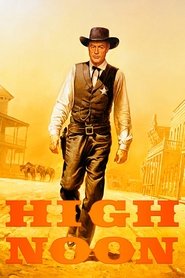 Will Kane the sheriff of a...
Will Kane the sheriff of a...High Noon 1952
Will Kane, the sheriff of a small town in New Mexico, learns a notorious outlaw he put in jail has been freed, and will be arriving on the noon train. Knowing the outlaw and his gang are coming to kill him, Kane is determined to stand his ground, so he attempts to gather a posse from among the local townspeople.
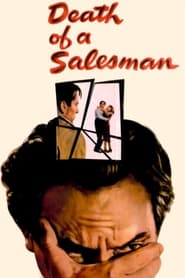 Willy Loman is an aging salesman...
Willy Loman is an aging salesman...Death of a Salesman 1951
Willy Loman is an aging salesman who was recently fired from his job. Dealing with feelings of failure, Willy begins to relive events from the past that involve his older son, Biff, and his wife, Linda. Willy tries to learn from past mistakes and works to make amends with his family, but his biggest struggle is to make peace with himself over a failed dream of financial success.
 France 1640 Cyrano the charismatic swordsmanpoet with...
France 1640 Cyrano the charismatic swordsmanpoet with...Cyrano de Bergerac 1950
France, 1640. Cyrano, the charismatic swordsman-poet with the absurd nose, hopelessly loves the beauteous Roxane; she, in turn, confesses to Cyrano her love for the handsome but tongue-tied Christian. The chivalrous Cyrano sets up with Christian an innocent deception, with tragic results.
 Ken a WWII GI returns home...
Ken a WWII GI returns home...The Men 1950
Ken, a WWII GI, returns home after he's paralyzed in battle. Residing in the paraplegic ward of a veteran's hospital and embittered by his condition, he refuses to see his fiancée and sinks into a solitary world of hatred and hostility. Head physician, Dr. Brock cajoles the withdrawn Ken into the life of the ward, where fellow patients Norm, Leo and Angel begin to pull him out of his spiritual dilemma.
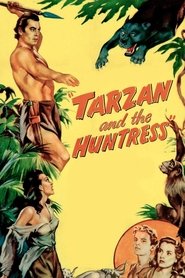 A shortage of zoo animals after...
A shortage of zoo animals after...Tarzan and the Huntress 1947
A shortage of zoo animals after World War II brings beautiful animal trainer Tanya, her financial backer and her cruel trail boss to the jungle. After negotiating a quota with the native king, they take more animals than allowed. Tarzan intervenes.
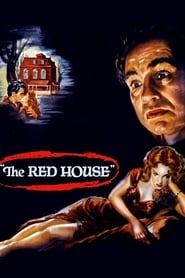 An old man and his sister...
An old man and his sister...The Red House 1947
An old man and his sister are concealing a terrible secret from their adopted teen daughter, concerning a hidden abandoned farmhouse, located deep in the woods.
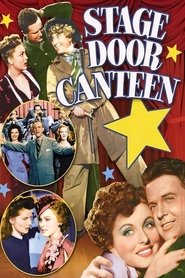 A young soldier on a pass...
A young soldier on a pass...Stage Door Canteen 1943
A young soldier on a pass in New York City visits the famed Stage Door Canteen, where famous stars of the theater and films appear and host a recreational center for servicemen during the war. The soldier meets a pretty young hostess and they enjoy the many entertainers and a growing romance
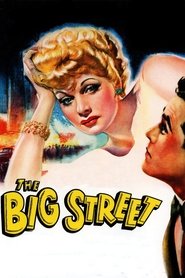 Meek busboy Little Pinks is in...
Meek busboy Little Pinks is in...The Big Street 1942
Meek busboy Little Pinks is in love with an extremely selfish nightclub singer who despises and uses him.
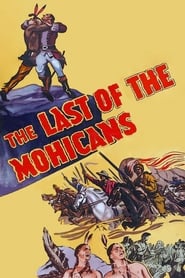 The story is set in the...
The story is set in the...The Last of the Mohicans 1936
The story is set in the British province of New York during the French and Indian War, and concerns—in part—a Huron massacre (with passive French acquiescence) of between 500 to 1,500 Anglo-American troops, who had honorably surrendered at Fort William Henry, plus some women and servants; the kidnapping of two sisters, daughters of the British commander; and their rescue by the last Mohicans.
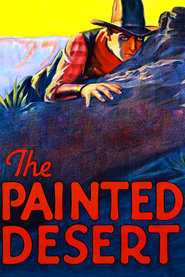 Western pardners Jeff and Cash find...
Western pardners Jeff and Cash find...The Painted Desert 1931
Western pardners Jeff and Cash find a baby boy in an otherwise deserted emigrants' camp, and clash over which is to be "father." They are still bitterly feuding years later when they own adjacent ranches. Bill, the foundling whom Cash has raised to young manhood, wants to end the feud and extends an olive branch toward Jeff, who now has a lovely daughter. But during a mining venture, the bitterness escalates. Is Bill to be set against his own adoptive father?
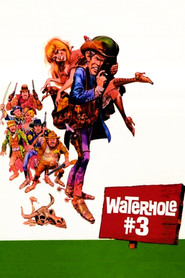 After a professional gambler kills a...
After a professional gambler kills a...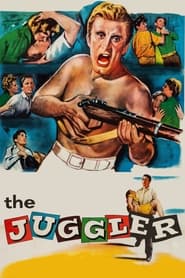 A Holocaust survivor moves to Israel...
A Holocaust survivor moves to Israel...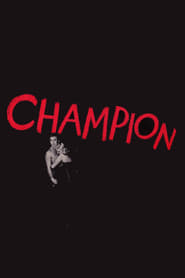 An unscrupulous boxer fights his way...
An unscrupulous boxer fights his way...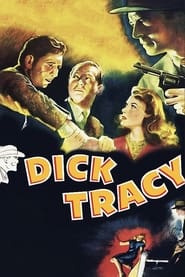 Detective Tracy Morgan Conway rescues Tess...
Detective Tracy Morgan Conway rescues Tess...